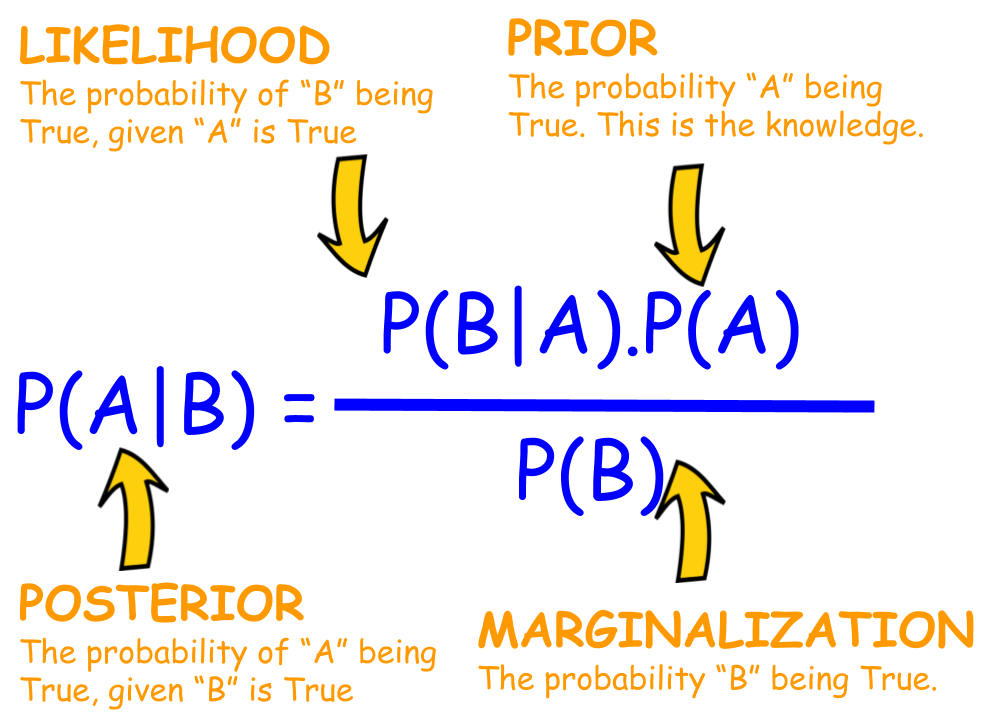Bayesian Thinking for Startups ft. @SebPark
How startups need to better incorporate new information to build competitive advantage!
Y’all remember Bayes’ Theorem right?
Lol.
For most of us who don’t remember, Bayes’ Theorem “describes the probability of an event, based on prior knowledge of conditions that might be related to the event.”
Seb Park (Infinite Canvas, BITKRAFT) believes more startups, including game studios, need to apply “Bayesian thinking” to better direct company strategy and improve decision-making.
Catch the full conversation below!
🎧 Listen on Spotify, Apple Podcasts, or Anchor
Speakers:
Joseph Kim. CEO at LILA Games
Sebastian Park. Cofounder at Infinite Canvas, Venture Partner at BITKRAFT
Key Highlights:
I highlight some of the key insights from this conversation with Sebastian below:
“When you are operating in new environments, you have such an imperfect information set that every new piece of information you receive should be dramatically changing your confidence levels, as well as your approach, both on the strategy and tactics of your business.”
“The new input, the new X input should have a much larger effect on how you view your strategy and your tactics, then let's say you are a Google or an Activision Blizzard or a company that has like such the established practice that for them, because of their history, every new piece of information has a smaller effect on their overall strategy or tactics.”
“The reason why startups succeed is not necessarily purely because larger companies are stale or archaic or unwilling to iterate. It's that by definition when you have so much more data and so much more history of things working, you should, in fact, make decisions slower. The conditional probabilities that you have are just a different set than that of a startup.”
“The thing that you should first start with is just writing out your priors. Write on a piece of paper: “Here's what we believe. Here's why we believe it at this moment in time.” Once you have that base, then you can circle back and do it over and over again.”
“You try to understand all of the new information that has occurred in the last eight weeks. And then as you have written down your assumptions, we would look at those, and we would try to understand not only the impact of new information on all of that stuff but in addition, understanding whether the way that we're thinking about conditional probabilities against all of those assumptions and key risks is correct or not.”
“There are two macro mistakes people make in decision making. Some people overreact to new information, and some people underreact to new information. The Bayesian approach helps you figure out the proper response rate to the information, which is, depending on the magnitude and depending on how much existing information you have, you should change up your response rates. And the best way to dial that in is to just write it out because it'll help you disentangle the general human inability to think through conditional probabilities. Because humans like everyone from doctors to mathematicians are all bad at it. Like we're just all horrendous at it. And the easiest way to solve for things when you're bad at it, at least in my opinion, is just to write it out.”
Well, folks, there’s much more to this discussion that I didn’t capture here so you should definitely check out the full discussion by watching the video above.
Further, make sure to catch my first interview with Sebastian when he talked about his thesis on why he believes user-generated content is the next frontier in gaming.
Check it out below:
If you have any further thoughts on this topic, Sebastian asks you to reach out to him directly.
You can catch him on Twitter: @SebPark



